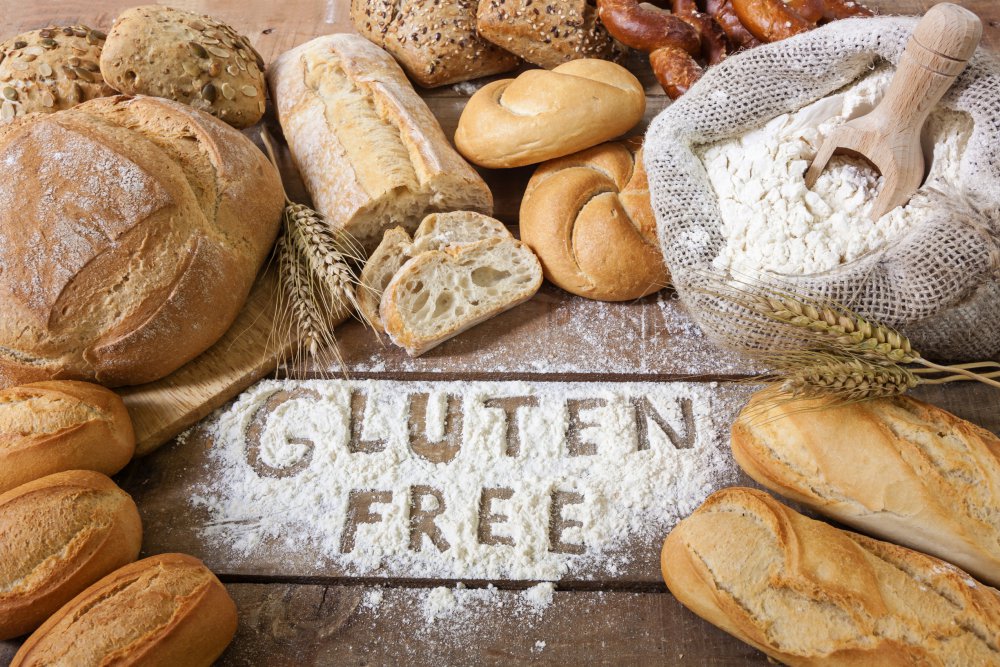We would eat too much gluten, present in bread, pasta, cookies, and that would explain many of our problems. Rumor or real problem?
Why the 'gluten free'?
? Today, in supermarkets, grocery products display, like a health label: "gluten-free".
More and more people claiming to be "gluten-intolerant" stop eating bread and pasta, and are in better shape. For their part, naturopathic currents have long considered that it is better to limit gluten because it is too indigestible . Finally, in his latest book, nutritionist Laurent Chevallier * says: "Gluten seems too much in the diet. When so many beams converge towards the same target, one can only wonder: would gluten have become our new nutritional pet peeve?
Who is really concerned?
? Gluten is indeed involved in a real pathology: celiac disease .
According to the French Association of Gluten Intolerants (www.afdiag.org), " 1 in 100 people can develop this disease, but in France, only 10 to 20% of cases are now diagnosed." Of genetic origin, it can appear at any age and is characterized by painful bloating, chronic fatigue, articulatory disorders. Above all, it causes the progressive disappearance of small folds that cover the intestinal wall. Result: the essential nutrients (calcium, iron ...) are no longer absorbed . Deficiencies that may lead to fatigue, osteoporosis, excessive weight loss ... "This undernutrition can be very serious, the vital risk is engaged," says Professor Christophe Cellier, gastroenterologist at the Georges Pompidou European Hospital and Chair of the Celiac Disease Study and Research Group. The only treatment possible is the lifetime eviction of gluten. So, in case of repeated digestive disorders , we quickly think to be intolerant to gluten and stop using it. Error ! A simple blood test (reimbursed by the Secu) can detect antibodies specific to the disease. If present, an intestinal biopsy will confirm the diagnosis. Only then will it be necessary to totally eliminate gluten from its diet. Not before.
What do we change to feel lighter?
? Without this genetic predisposition , we are not really intolerant to gluten, but we can be ultra-sensitive.
In other words, we are really embarrassed by eating but, fortunately, we do not develop intestinal disease . "In this case, there is just some discomfort," Clarke Cellier clarifies. Then we enter the world of poorly known "intestinal functional disorders" where everyone gropes to know what he supports or not and in what proportion. What if the medical examinations do not show us sick and we still have pain? For Laurent Chevallier, "it is not a question of falling into an antigluten mode, but of limiting its daily consumption". We can fall back without fear on the potato, and gluten-free cereals such as rice, quinoa ... Because, as often in nutrition, it is better to eat a variety of foods at the risk of boring your gut ... which ends up saying stop!
* Author of "The 100 best foods for your health and the planet", Editions Fayard, 19 €.
The advantages of gluten
? Gluten is a cocktail of proteins naturally present in certain cereals: wheat, rye, barley ...
We therefore eat it daily as soon as we bite into a baguette, we swallow a plate of pasta. On the other hand, rice, buckwheat, maize, quinoa or soy do not contain it. Eliminating gluten when it is not medically justified may deprive us of valuable nutrients in cereals, especially fiber. Finally, cereals are a source of carbohydrates, therefore energy. By choosing them complete and organic, their assimilation is slower, and the energy they bring lasts longer.



